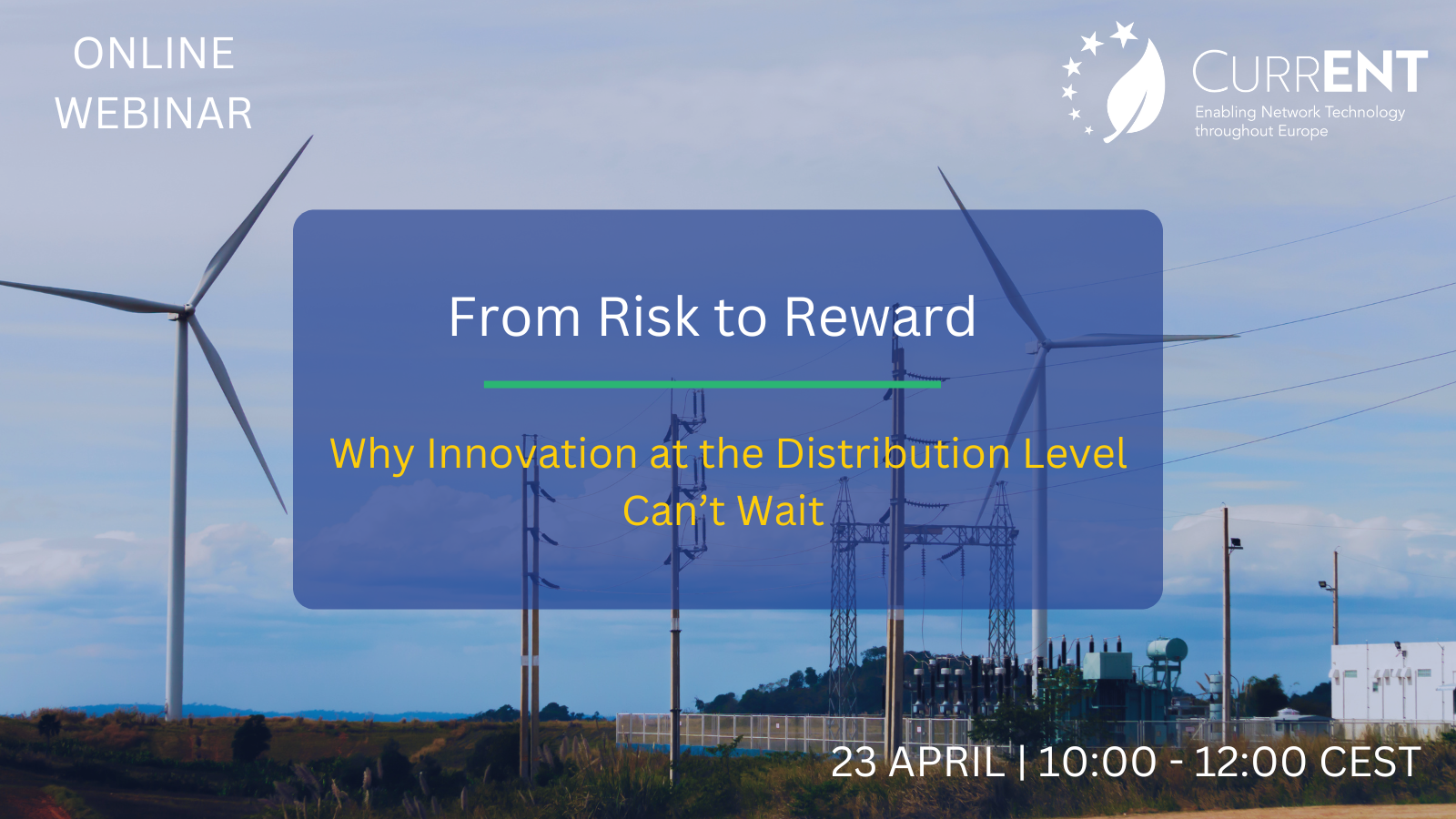Conclusion | From Risk to Reward : Why Innovation at the Distribution Level Can’t Wait

“The cost of inaction is higher than the cost of action” as was rightly stated in the Affordable Energy Action Plan, published by the European Commission on 26 February 2025. If Europe does not act to build the grid capacity that is needed, the consequences for European competitiveness and decarbonization will be detrimental. Nevertheless, the widescale deployment of innovative grid technologies at the distribution level is facing incentives and regulations that do not sufficiently encourage system operators to deploy new technologies, or promote perceived ‘risk taking’. Overcoming these perceived deployment risks is essential to unleash the full potential of innovative grid technologies.
Diving deeper into this topic, CurrENT discussed it during a two-hour online webinar on 23 April, 10 – 12 CEST, discussing CurrENT’s recently updated ‘Recommendations for the deployment of DSO projects’, focusing on how to overcome the perceived risk of deploying technologies to support the deployment of a range of available innovative grid technologies. For this updated edition, CurrENT expanded the scope of technologies as well as adding more detail and case studies to the existing technologies. Several speakers were attending to present their own case studies, focusing on their specific needs and available solutions, as well as their experiences with managing risks and regulations associated with the implementation of innovative grid technologies into the grid. Energy experts provided their perspective on how such risks can be managed and regulation improved to support deploying innovation.
Recap
Ewan Ramsay, Policy Officer at Current, started the webinar by highlighting the urgency of distribution-level innovation for Europe’s electricity grids, emphasizing the need for significant investment to meet decarbonization and competitiveness goals set by the European Union
Mark Norton, Smart Wires and Chair of CurrENT’s DSO Working Group, introduced the Second edition of the ‘Recommendations for the deployment of DSO projects’ to navigate innovative grid technologies and stressed the importance of evaluating these technologies based on their system-wide benefits.
Rena Kuwahata, Energy Analyst Power System Transformation at the International Energy Agency, provided a global perspective on the need for rapid grid innovation to support electrification and warned about the consequences of delays.
Efthimia Chassioti, Head of Section Technology in the Department of Research, Technology & Development at IPTO and Konstantinos Krommydas, Researcher with the Research, Technology and Development Department at IPTO, presented a case study on using Smart Wires’ Modular Power Flow Control (MPFC) technology in Northern Greece, showing its potential to reduce congestion and costs.
Alberto Mendez, CEO of Plexigrid, discussed the inefficiency of Europe’s distribution grids and presented Plexigrid’s solution for real-time grid management and integration with local flexibility markets.
Riccardo Vailati, Chair of the Infrastructure Workstream at CEER and Team leader at ARERA, outlined Italy’s regulatory approach to incentivize grid innovation, including a benefit-based model that rewards Distribution System Operators (DSOs) for the societal benefits of their projects.
Q&A Session with the audience